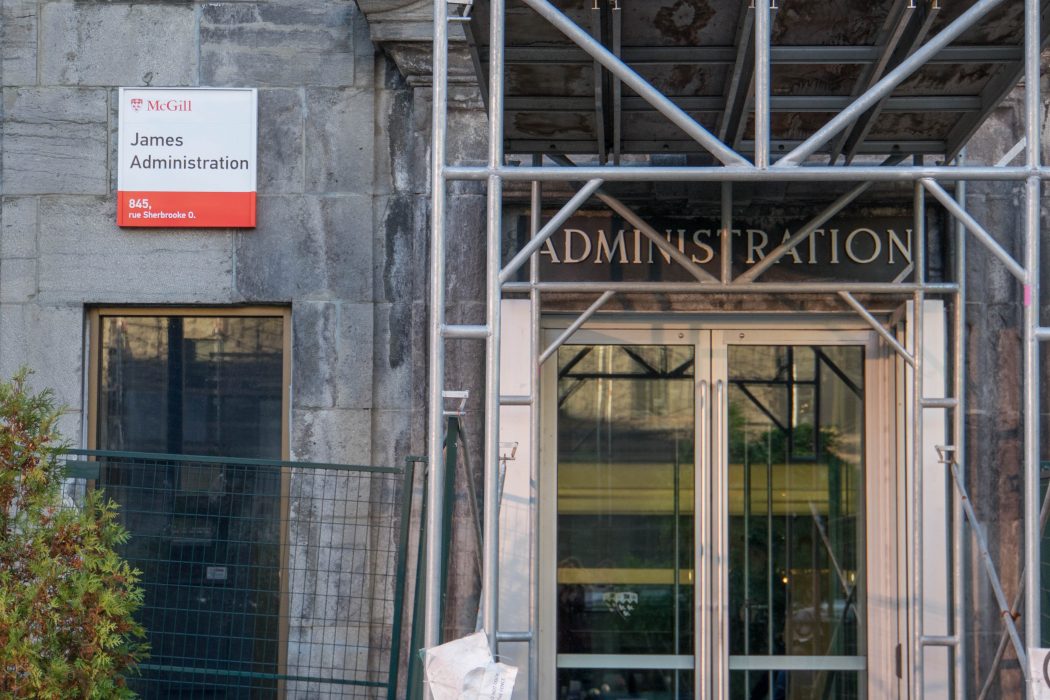Fall 2021 Reopening Q&A
On 26 February, the McGill administration hosted a student media roundtable for questions about the fall 2021 return to in-person classes, first announced on 23 February. Deputy Provost (Student Life and Learning) Fabrice Labeau and Associate Provost (Teaching and Academic Programs) Christopher Buddle answered questions from the Bull & Bear, the McGill Tribune, and the McGill Daily. Media Relations representatives Shirley Cardenas and Cynthia Lee moderated the discussion.
The Announcement
When the Bull & Bear asked why McGill had made such a sweeping announcement to reopen, ahead of schools like Concordia, Labeau said that his “17 counterparts across Quebec” had agreed that fall 2021 would be in-person. Labeau emphasized McGill’s regular consultations with the Quebec government, Public Health, and other U15 universities before announcing the return to classes.
Despite variables such as the efficiency of vaccine rollouts, evolving health directives, and coronavirus variants, the decision was based on public health projections that Quebec’s at-risk population will all be vaccinated by September.
“[This announcement] might seem early to many in the community, but I think it’s really a signal that we’re confident in our planning, and we’re building in scenarios to deal with any adaptations as needed,” said Buddle. Although no firm statements can be made about the future of academic activities outside of Montreal, such as student exchange programs and terms away, Labeau is “personally very much convinced that a return to full normality is expected in the winter of 2022.”
Fall 2021 changes – “Blended approach,” Quarantine Bursary, Double Frosh
The current tier-2 academic activities—“seminar courses, tutorials, conference lectures,” and some labs—are a testing ground for what Buddle calls the “blended approach” that large lectures may adopt in fall 2021. This approach will be a mix of in-person and online components. Smaller classes, along with the current tier-2 activities, are planned to be fully in-person. Professors are not expected to prepare two different versions of a course to accommodate students who are not in Montreal. International students are expected to return by the fall semester.
However, the summer semester will remain remote as planned, with the possibility of in-person components for field courses and local internships. Labeau said that it is too early to decide whether students will be required to be vaccinated for the fall semester.
A new Quarantine Bursary Program has been announced for students facing financial barriers from travel restrictions. Labeau focused on the mandatory hotel stopover, a three-day quarantine in a government-designated hotel, which travelers flying back to Canada have paid an average of 900 to 1200 dollars for, out of pocket, as they await COVID-19 test results. Students can apply for the bursary via Minerva under the “Financial Aid and Awards” section.
Finally, the administrators addressed the entering students of this school year and the next—the former having missed out on the typical first year experience, and the latter possibly being the first post-COVID freshmen.
Given the past year’s pause on extracurricular activities such as frosh, orientation week, and in-person student club meetings, Labeau recognized the gap between existing student club members and the “next generation.” Labeau assured that McGill is keeping these cohorts and clubs in mind, with the chance of “double frosh[es],” “double orientation weeks,” and “double activities night[s]” come fall. “All sorts of weird things can happen next year.”







